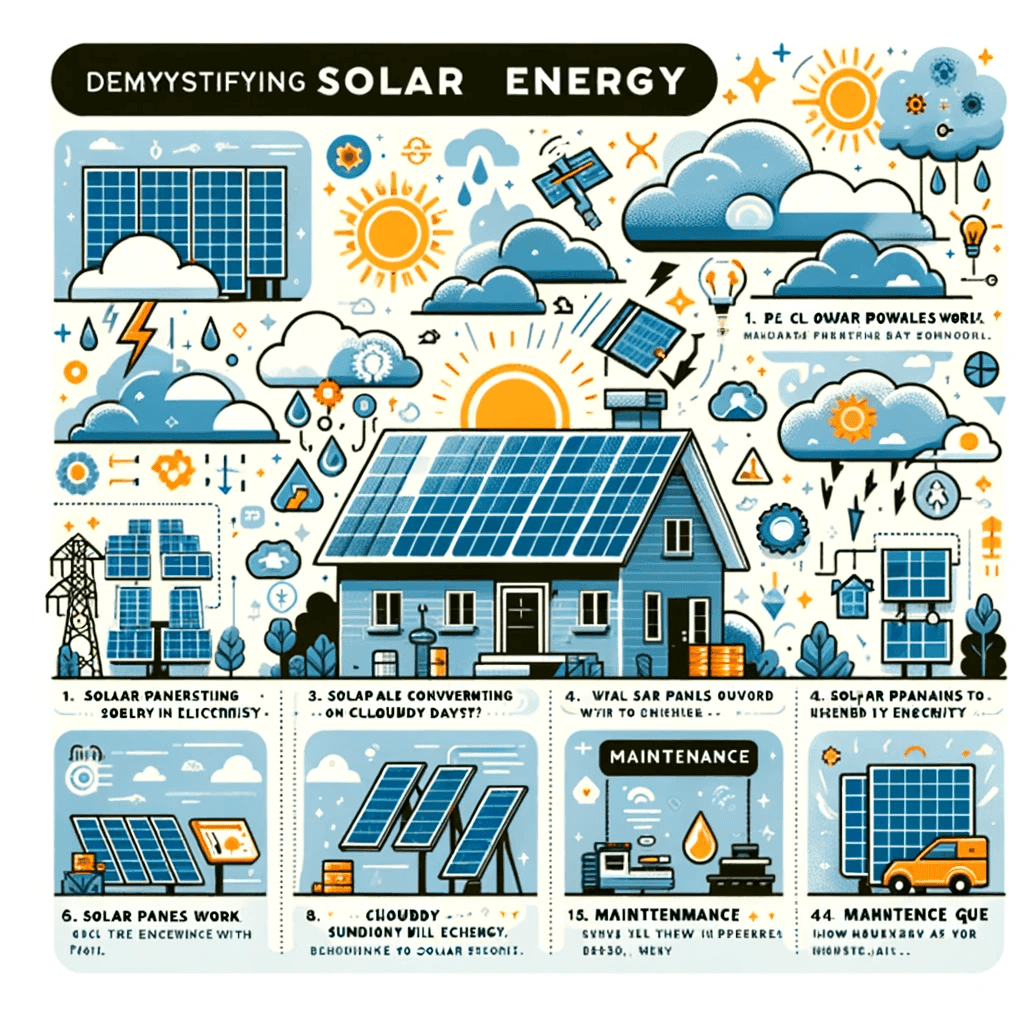Introduction:
Solar energy, despite its growing popularity, is still surrounded by a myriad of questions and misconceptions. Whether you’re considering installing solar panels or simply curious about how solar energy works, this blog post aims to demystify solar power by answering some of the most common questions.
1. How Do Solar Panels Work?
Solar panels work by converting sunlight into electricity. They are made up of photovoltaic (PV) cells, which absorb sunlight and generate an electric current. This current is then converted from direct current (DC) to alternating current (AC), which can be used to power homes and businesses.
2. Can Solar Panels Work on Cloudy Days?
Yes, solar panels can still generate electricity on cloudy days, albeit at reduced efficiency. Modern solar panels are designed to capture different spectrums of sunlight, meaning they can still function under overcast conditions.
3. How Much Does It Cost to Install Solar Panels?
The cost of installing solar panels varies depending on factors like the size of the system, location, and the type of panels used. However, prices have been decreasing over the years, and many regions offer incentives and rebates to offset the cost.
4. Are Solar Panels High Maintenance?
Solar panels require very little maintenance. Keeping them clean and ensuring they are not shaded by trees or other obstructions is generally all that’s needed to maintain their efficiency.
5. How Long Do Solar Panels Last?
Solar panels are quite durable and typically come with a warranty of 20-25 years. Many panels continue to operate efficiently long after their warranty period has expired.
6. Is My Home Suitable for Solar Panels?
Most homes can accommodate solar panels, but factors like roof space, orientation, and shading will affect their efficiency. A professional solar assessment can determine the viability of a solar panel installation for your home.
7. What Happens at Night or During Power Outages?
At night or during power outages, solar systems with battery storage can provide electricity. Alternatively, grid-tied systems will draw power from the utility grid when solar energy is not available.
Conclusion:
Solar energy is an increasingly accessible and sustainable power source, offering numerous benefits. By understanding the basics and clearing up common misconceptions, more people can confidently embrace this clean energy technology.
For more information about solar energy and to see if it’s right for you, visit www.GoSolarGlobal.com.


